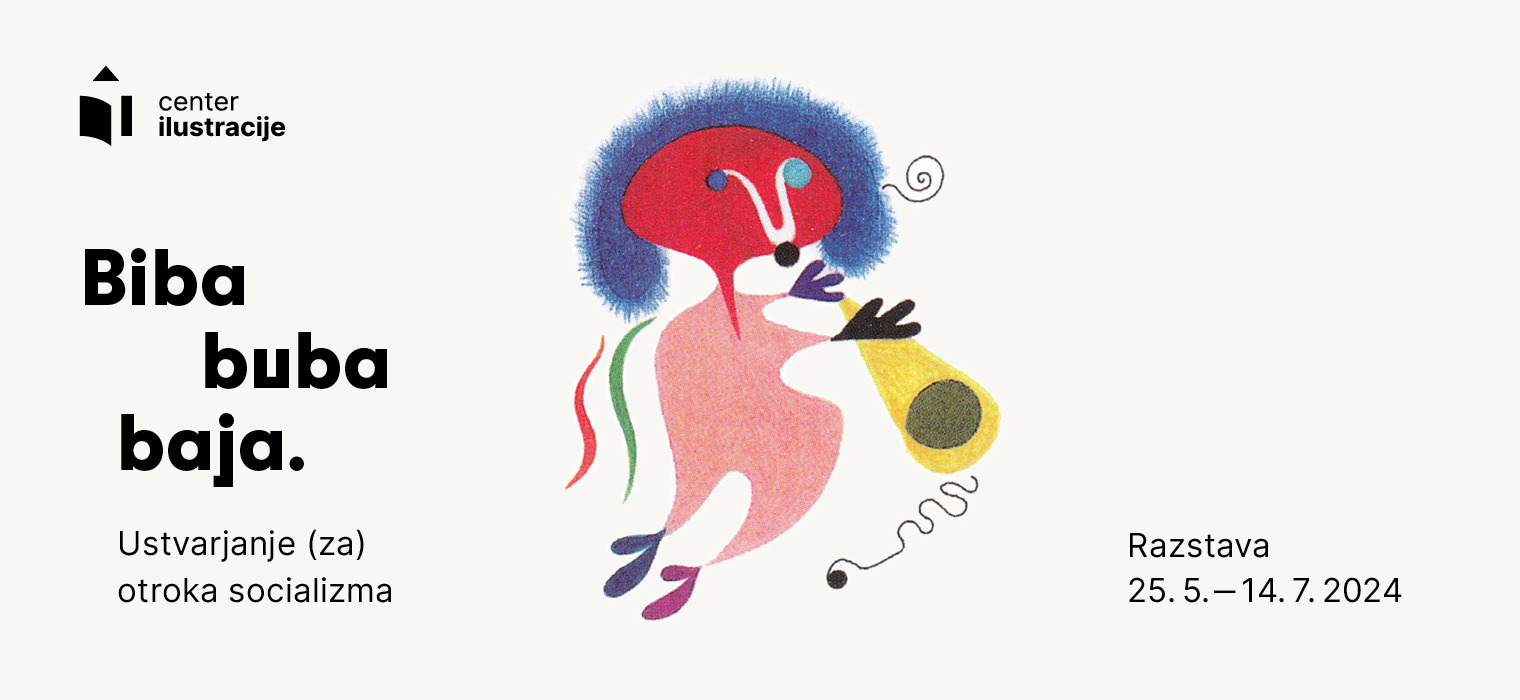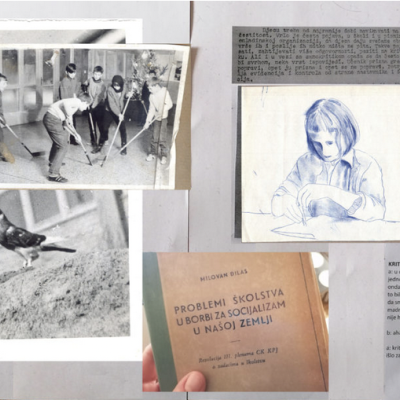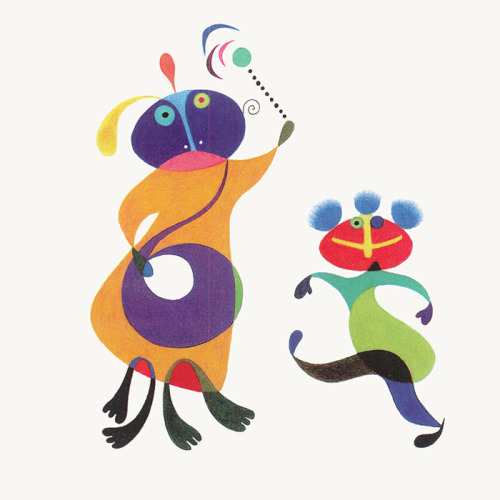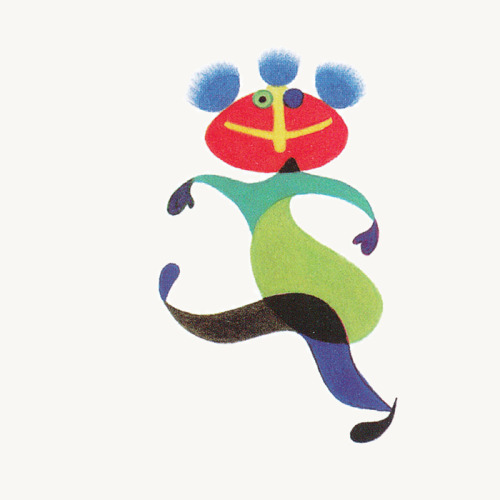
Biba buba baja. Contemporary view
Vodnikova domačija Center / Center ilustracije
Exhibition opening: saturday, 25. May at 6pm
Anamarija Batista: Picture Books: About Connections and Solidarity, digital collages, 2023
The work Picture Books examines how the ideals of socialist Yugoslav society were conveyed through picture books. The themes presented in picture stories for children were closely linked to the subjects of the anti-fascist struggle (NOB), the modernisation of Yugoslav society and the development of a specific Yugoslav system of self-government.
The memory of the NOB, education and mobility (multilingualism and translation practice) were the key factors. The children's books made the reader realise that there can be no knowledge without solidarity. In addition to functional aspects, education, work, mobility and leisure, for which an (infra)structure was created precisely in the process of modernisation (and also the Yugoslav national army with compulsory military service for all young men of age), were also important in terms of ideas and practises for collectivity and collective action.
In the artistic work Picture Books, certain actions and gestures are placed in the foreground, while other parts of the image and text are hidden through the use of different materials (wood, textiles, plant structures, etc.). Playing with the visual material involves emphasising selected physical gestures, forms of communication and ideas of solidarity by hiding other parts of the image composition. The aim of focussing on and highlighting certain pictorial elements is to better understand the mediation processes of the ideas of the time but also to reintroduce these ideas into the current discourse and reflect on the extent to which they have changed and transformed.
Renata Poljak: Staging Actors / Staging Beliefs (Boshko Buha), video with sound, 11 min, 2011.
As a child, Ivan Kojundžić became a favourite face on the silver screen. He played the historical figure of Boshko Buha in a popular Yugoslavian feature film of the same name. Shot in 1979, the film depicts the life, struggle, bravery and heroic death of this youngest partisan, who was only fifteen years old when he joined the communist movement and was posthumously named a national hero of Yugoslavia. Boshko Buha was one of the most popular films of the socialist Yugoslavian era. Only 10 years after starring in the film, Ivan Kojundžić became actively involved in the Serbian–Croatian war, which meant the end of the Yugoslav federation and its political agenda — the very one Boshko Buha had fought for. The video shows Ivan Kujundžić as a 48-year-old adult man. One interview, two different beliefs.
Renata Poljak: Staging Actors / Staging Beliefs (Hommage to…), video, 2011
Another popular child actor in socialist Yugoslavia was Slavko Štimac, who also starred in the film adaptation of Mate Lovrak's 1931 novel Train in the Snow (Vlak u snijegu, 1976, directed by Mate Relja). The novel and the film tell of the solidarity and collective responsibility of children who organise themselves and work together to dig out a train stuck in a snowstorm. Like Boshko Buha, the film influenced generations of people growing up in Yugoslavia.
After the collapse of Yugoslavia, however, Slavko Štimac was almost forgotten: you can't be a film star in a country that no longer exists. In the video, Renata Poljak concentrates exclusively on the motif of snow; she arranges and films the fake snow falling on a theatre stage, illuminated by reflectors. These silent, uninterrupted shot of snow gradually covering the stage become a poignant, poetic metaphor for the forgetting and erasure of history.
Ana Hušman, Dubravka Sekulić: Don’t Trace, Draw! / Ne precrtavati, nego crtati!, film, stereo, 2020
The Pioneer City was the product of both political and societal necessity — and it built and was built with the idea that education has to leave the confines of the ‘school’ and enter the city, i.e. everyday life, and thus produce the ‘new’ human for the new socialist society.
When in 1947 groups of voluntary youth brigades gathered on a hillside next to the stream, in the vicinity of Zagreb to build the Pioneer City, besides an architectural plan for a city dedicated to the education of the youngest population, little else was certain about what that space would actually be. However, one thing was well understood — it was to be a site of education from the moment the first shovel hit the ground, and it was an experimental school, a laboratory for the pedagogical reform in progress from 1951 to 1961.
Layering the fragments of recollections by Jelena Hušman and a history lesson with a historian Sanja Petrović Todosijević over existing spaces, the film asks “what was experimental in the experimental school?” Through the film, authors stumble over the future as a concept which in the past was an inevitability and gave society and its approach to education a clear sense of direction, and which for them stands for uncertainty. The hope for a better future, progress, prosperity and certainty of the future which was foundational for the generation of Jelena Hušman had disappeared and was transferred through the uncertainty of our everyday lives to the non-existent future of new generations.




